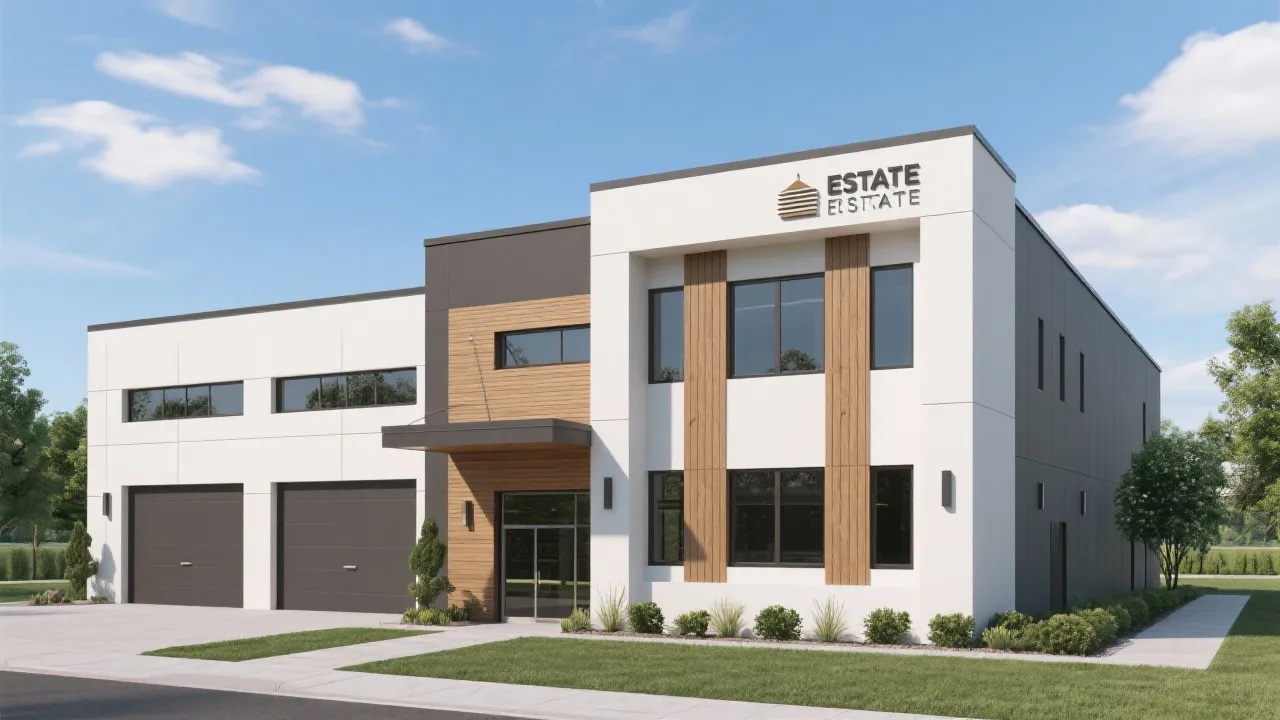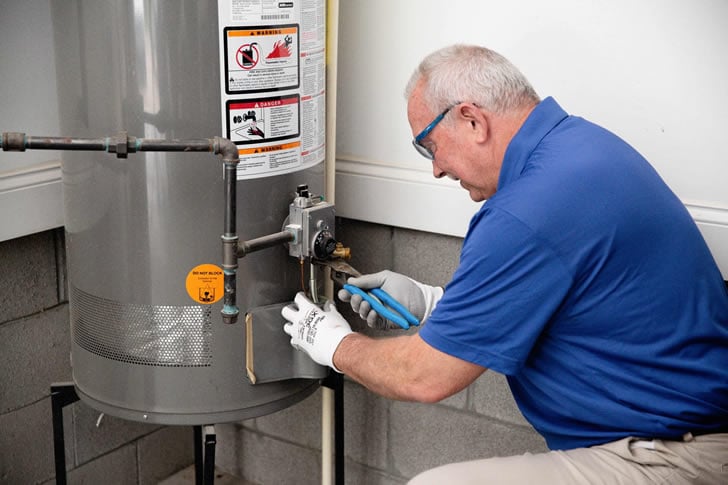Navigating Facility Realty Opportunities
Facility Realty is essential in managing real estate effectively, offering specialized services that optimize the use of space for businesses. Emphasizing strategic planning and operational efficiency, it plays a crucial role for industries seeking growth and sustainability in the property market. This article delves into the dynamics of Facility Realty, providing insights into its impact and opportunities.

Understanding Facility Realty
Facility Realty encompasses the management, operation, and strategic planning of real estate to enhance the efficiency and effectiveness of properties used by businesses. It involves an array of services including the maintenance, acquisition, leasing, and enhancement of buildings and industrial sites. In today's competitive business environment, Facility Realty is integral to ensuring companies not only survive but thrive, by optimizing space and resources.
Facility Realty is not merely about buildings; it's about creating environments where businesses can flourish. When navigating the complexities of modern real estate, Facility Realty professionals must employ a holistic approach to property management that includes understanding market trends, operational requirements, and the specific needs of tenants or businesses occupying those spaces. This ensures a multifaceted strategy that attends to both immediate operational concerns and long-term strategic goals.
Key Components of Facility Realty
The spectrum of Facility Realty is broad, covering various aspects from operational management to strategic initiatives aimed at maximizing property value and efficiency. Here are some of the key elements it entails:
- Property Management: Routine maintenance, repairs, and ensuring compliance with regulations. This encompasses the scheduling of inspections, the management of contractor services, and maintaining records of all activities related to building upkeep.
- Lease Management: Negotiating leases, analyzing market trends, and ensuring contract compliance. Effective lease management not only secures favorable terms for property owners but also helps tenants understand their rights and responsibilities.
- Strategic Planning: Identifying growth opportunities, space optimization, and sustainability measures. Strategic planning may include analyzing demographic shifts that influence market demand, thus enabling proactive adjustments to property offerings.
- Technology Integration: Implementing technology for facility management to improve operational efficiency. This includes smart building technologies that monitor energy usage, automate lighting and climate controls, and integrate security systems for enhanced safety.
Market Dynamics and Trends
Facility Realty is influenced by various market dynamics and emerging trends. Recent years have shown an increase in the demand for technologically advanced and sustainable facilities, pushing industries to redefine their strategies. Companies are increasingly focused on creating spaces that not only meet operational needs but also align with environmental commitments.
Another trend is the shift toward flexible work environments, which calls for adaptable facility designs. This trend is particularly pronounced in the wake of global shifts in work patterns, such as remote work, which has redefined space utilization strategies. Employers are re-evaluating office layouts, incorporating collaborative spaces that promote teamwork alongside areas for concentration that cater to the needs of remote workers who occasionally return to the office.
Additionally, the rise of e-commerce has influenced the industrial real estate sector significantly. Warehouses and distribution centers have become critical, prompting facility operators to seek flexible zoning solutions and distribution efficiencies. As e-commerce continues to grow, Facility Realty plays a pivotal role in ensuring these spaces are optimized for both front-end customer satisfaction and back-end operational effectiveness.
Investment Opportunities in Facility Realty
Investing in Facility Realty poses significant opportunities, given the constant demand for efficient business environments. With careful analysis and strategic planning, investors can capitalize on trends that prioritize energy efficiency and technological innovation. The demand for green buildings and automated facilities is particularly noteworthy as more organizations strive to meet sustainability standards.
Investors seeking opportunities in Facility Realty often look at properties that have the potential for value-add refurbishments, such as retrofitting buildings with energy-efficient systems or reconfiguring interior spaces to meet modern business needs. Green certifications, such as LEED (Leadership in Energy and Environmental Design), can significantly enhance a property's marketability and rental value, attracting environmentally-conscious tenants willing to pay a premium for sustainable spaces.
The convergence of technology and real estate also presents new opportunities. Technologies such as Internet of Things (IoT) devices can monitor energy consumption and provide analytics for operational decision-making, opening avenues for investments in properties equipped with such technologies. Investors are also challenged to think beyond traditional metrics of returns, factoring in the ESG (Environmental, Social, and Governance) criteria that increasingly influence investment decisions.
Challenges Facing Facility Realty
Despite its opportunities, Facility Realty faces challenges that require strategic navigation. The complexities of regulatory compliance, fluctuating real estate markets, and rising operational costs are some of the critical hurdles. Furthermore, the necessity for continual upgrades in technology and sustainability measures imposes additional demands on property managers and investors alike.
As urban development policies evolve, staying compliant can become cumbersome; laws regarding building codes, zoning, and environmental regulations can change rapidly, necessitating an ongoing education process for Facility Realty professionals. An additional challenge arises from the market's cyclical nature; downturns in the economy can lead to higher vacancy rates and pressure on rental income, prompting facility managers to adopt robust crisis management strategies to maintain property value.
Furthermore, as companies shift towards a more hybrid work model, Facility Realty must adapt to the complexities of managing both physical and virtual office spaces. Understanding the balance between traditional office needs and the rising demand for remote working infrastructure will be critical. This hybrid model can lead to uncertainty about space requirements, necessitating agile real estate strategies that can respond to rapid changes in workforce dynamics.
FAQs
- What is Facility Realty? Facility Realty is the management and optimization of real estate properties to improve productivity and operational efficiency of businesses through strategic planning and resource management.
- Why is sustainability important in Facility Realty? Sustainability reduces operational costs, ensures compliance with regulations, and meets the growing demand for energy-efficient spaces, making properties more appealing to environmentally conscious tenants.
- How can technology enhance Facility Realty? Through automation and advanced management systems, technology enhances operational efficiency and supports strategic facility planning by providing real-time data and predictive analytics.
- What are key trends in Facility Realty? Key trends include sustainability, flexible workspace design, and technological integration in facility operations, fundamentally reshaping how properties are managed and utilized.
- What role does tenant engagement play in Facility Realty? Tenant engagement is crucial to understanding tenant needs, ensuring retention, and fostering a sense of community within facilities, which can boost overall satisfaction and reduce turnover rates.
- How can Facility Realty adapt to the changing nature of work? By implementing flexible spaces, incorporating technology for remote work, and offering amenities that enhance employee experiences, Facility Realty can meet the evolving demands of businesses today.
Expert Insights into Facility Realty
The integration of now-essential aspects like sustainability and flexible workspace design has positioned Facility Realty as a pivotal factor in modern business operations. Experts in the field argue that the increasing reliance on technology and the drive for sustainable practices will shape the future of Facility Realty significantly. Businesses and investors must adapt to these developments to fully harness the potential of their real estate assets.
Moreover, thought leaders emphasize the importance of data analytics in Facility Realty. The analysis of space utilization trends, employee feedback, and operational efficiency metrics can guide decision-making, enabling professionals to create better spaces that enhance productivity. This data-driven approach also supports negotiations with tenants to optimize leasing terms that suit emerging business needs.
As the cross-disciplinary nature of Facility Realty continues to grow, professionals are encouraged to integrate knowledge from various fields, including architecture, engineering, and environmental science. Collaborative teams composed of diverse expertise are more likely to yield innovative solutions that address the complex challenges of managing real estate in today's dynamic environment.
Conclusion
In conclusion, Facility Realty represents a vital component of business strategy, providing opportunities for growth and resilience in an ever-evolving market. By understanding its dynamics, embracing technology, and integrating sustainability, businesses and investors can unlock the full potential of their real estate portfolios in Facility Realty. In a world where adaptability and foresight increasingly dictate success, those engaged in Facility Realty must prioritize continuous learning and innovation to keep pace with market developments.
Ultimately, the future of Facility Realty will likely see a convergence of technology and sustainability on a larger scale, with organizations that prioritize these elements being positioned favorably in the real estate landscape. From efficient property management practices to innovative design solutions, Facility Realty holds the key to unlocking remarkable operational improvements and new avenues for growth across various sectors.










